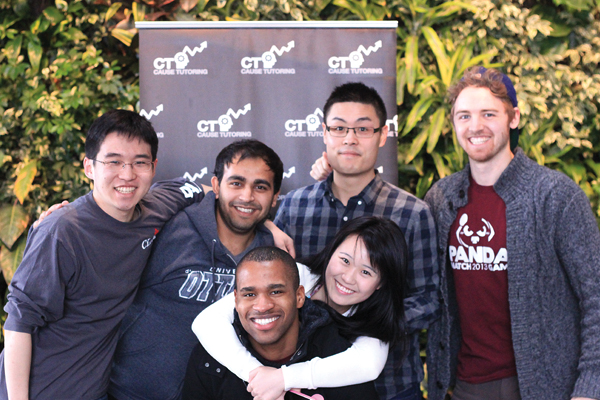Plan deemed most logical option to increase university funds
The University of Ottawa has finally found a way to shed its financial woes.
“Bitcoin!” shouted U of O president Jacques Frémont to a passing student. “It’s the future!”
The move to invest heavily in the confusing cryptocurrency comes after the university’s Board of Governors began examining new revenue streams for the institution.
“We looked at a variety of options—more fundraising, mutual funds, asset reallocation,” said the university’s new head of resources Satoshi Nakamoto. “But in the end it was clear that Bitcoin was the only sensible choice.”
Nakamoto added that the university did consider investing in DogeCoin instead, but ultimately decided against it. “I’m more of a cat person anyway,” he said.
According to Frémont, the U of O was so pleased with the idea of buying Bitcoin that it would be investing every dollar it has into the cryptocurrency. When pressed on the underlying volatility of the digital currency, he responded, “We’re putting all our eggs in one basket, just like you’re supposed to!”
Despite the aggressive financial move, some students remain nonplussed.
“It’s not that crazy,” said Bertrand Dill, a third-year history student. “Let’s be honest, volatile cryptocurrencies have a higher chance of paying off than my U of O degree.”
One student, however, was very disappointed in the move.
“This investment is lame,” said first-year general arts student Travis Dude, rather calmly. “The university could make way more money selling marijuana when it becomes legal,” he opined, before drifting off to scavenge for Cool Ranch Doritos.
Despite the lethargic criticism, the university’s president held fast in his decision.
“Investing in Bitcoin is a perfect fit for the U of O and our stated principles,” said Frémont. “What could defy the conventional more than investing in the same thing as everyone else?”
When asked what the university would do if investing in Bitcoin doesn’t work out, Frémont seemed shocked.
“There’s no need for skepticism, we just put all of our money into a risky asset with no physical value tethering it to the real world,” he said. “We’re not idiots.”
Nakamoto jumped in, adding that the university had plenty of plans waiting in the wings, just in case.
“We’re actually working on a line of scented candles called ‘Serenity by Jacques,’” he said. “Not to mention our ‘build your own living wall’ kits.”
When asked if the projected influx of funds will mean lower tuition rates for students, Frémont responded, “I don’t think that would be financially responsible.”






